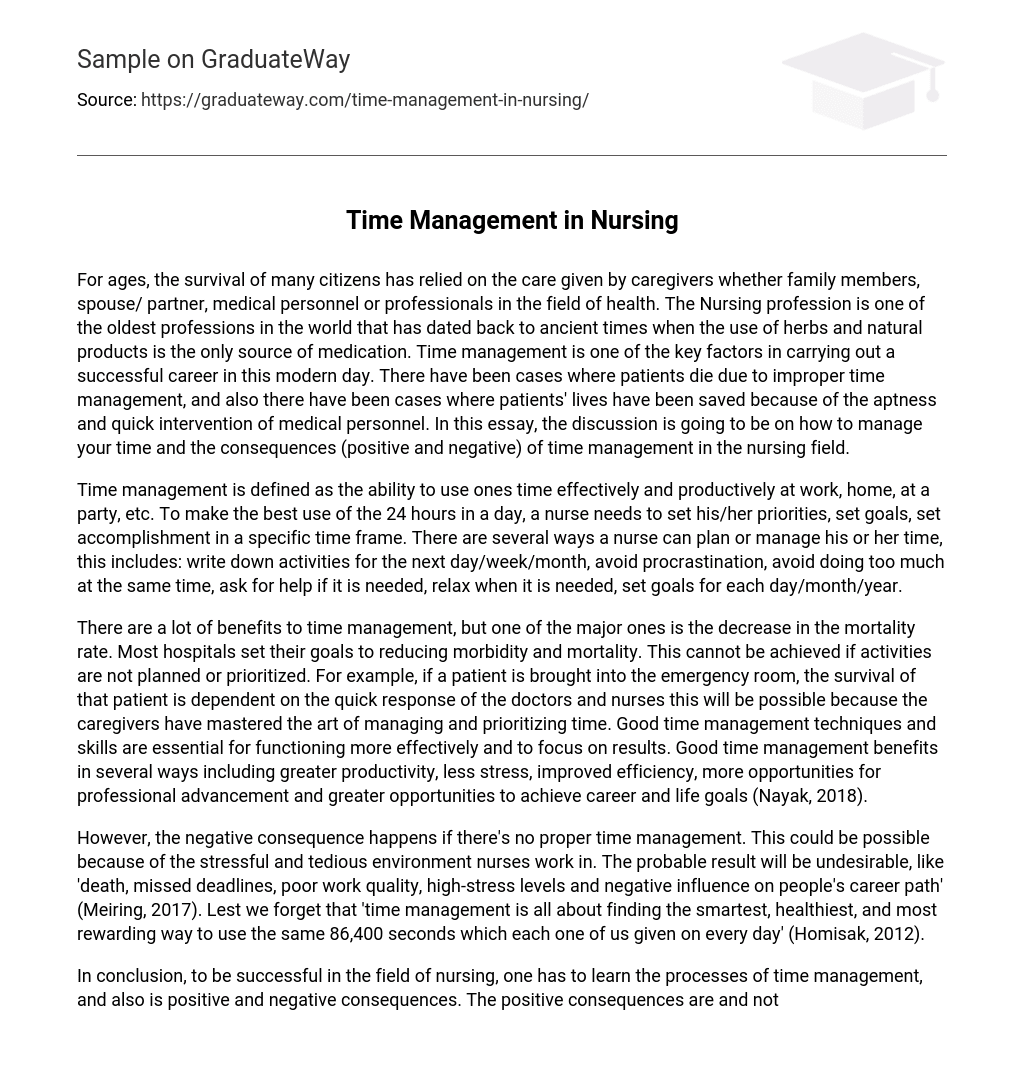For ages, the survival of many citizens has relied on the care given by caregivers whether family members, spouse/ partner, medical personnel or professionals in the field of health. The Nursing profession is one of the oldest professions in the world that has dated back to ancient times when the use of herbs and natural products is the only source of medication. Time management is one of the key factors in carrying out a successful career in this modern day. There have been cases where patients die due to improper time management, and also there have been cases where patients’ lives have been saved because of the aptness and quick intervention of medical personnel. In this essay, the discussion is going to be on how to manage your time and the consequences (positive and negative) of time management in the nursing field.
Time management is defined as the ability to use ones time effectively and productively at work, home, at a party, etc. To make the best use of the 24 hours in a day, a nurse needs to set his/her priorities, set goals, set accomplishment in a specific time frame. There are several ways a nurse can plan or manage his or her time, this includes: write down activities for the next day/week/month, avoid procrastination, avoid doing too much at the same time, ask for help if it is needed, relax when it is needed, set goals for each day/month/year.
There are a lot of benefits to time management, but one of the major ones is the decrease in the mortality rate. Most hospitals set their goals to reducing morbidity and mortality. This cannot be achieved if activities are not planned or prioritized. For example, if a patient is brought into the emergency room, the survival of that patient is dependent on the quick response of the doctors and nurses this will be possible because the caregivers have mastered the art of managing and prioritizing time. Good time management techniques and skills are essential for functioning more effectively and to focus on results. Good time management benefits in several ways including greater productivity, less stress, improved efficiency, more opportunities for professional advancement and greater opportunities to achieve career and life goals (Nayak, 2018).
However, the negative consequence happens if there’s no proper time management. This could be possible because of the stressful and tedious environment nurses work in. The probable result will be undesirable, like ‘death, missed deadlines, poor work quality, high-stress levels and negative influence on people’s career path’ (Meiring, 2017). Lest we forget that ‘time management is all about finding the smartest, healthiest, and most rewarding way to use the same 86,400 seconds which each one of us given on every day’ (Homisak, 2012).
In conclusion, to be successful in the field of nursing, one has to learn the processes of time management, and also is positive and negative consequences. The positive consequences are and not limited to: less stress, productive day at work, decrease in morbidity and mortality rate, while the negative consequences are high-stress level, missed deadline, poor work quality, and sometimes high death rates. Nurses need to learn to manage their time, this makes working in the ‘already stressed’ environment easy for them and their patients.





